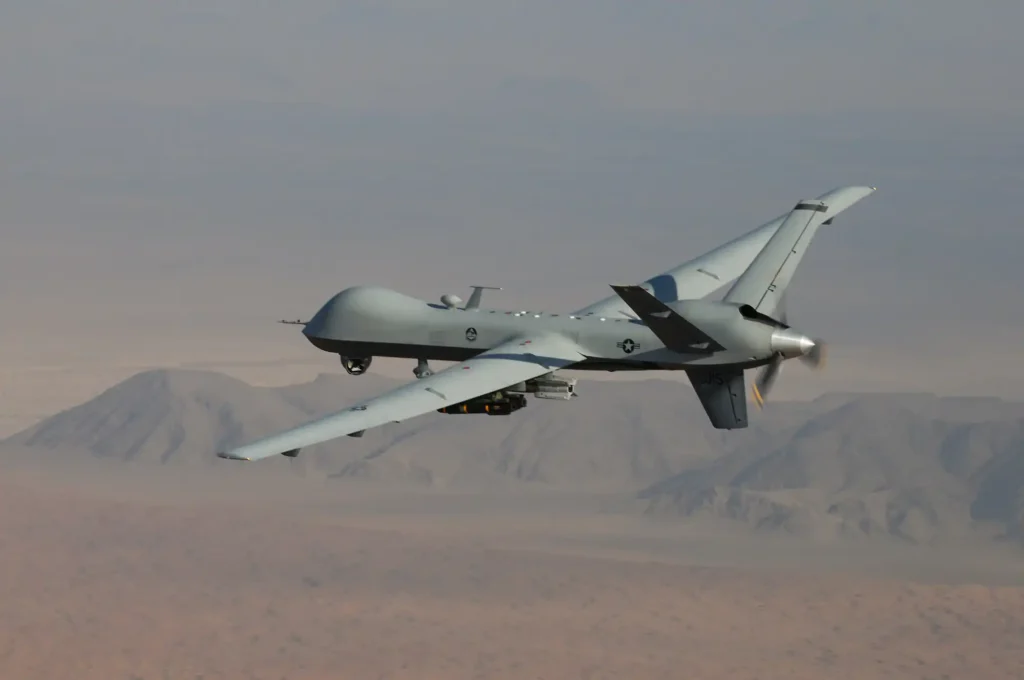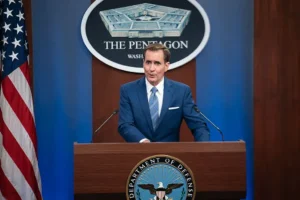The strike comes after recent attacks to US troops by militias.

The Pentagon announced a retaliatory strike executed by the U.S. military in Baghdad, killing a militia leader allegedly responsible for orchestrating recent assaults on American personnel.
Major General Patrick Ryder, a spokesperson for the Pentagon, identified the individual as Mushtaq Jawad Kazim al Jawari, a prominent figure within Harakat al Nujaba. According to Ryder, Jawari played a key role in planning and executing attacks against U.S. personnel.
The strike, occurring around 0900 GMT, specifically aimed at Jawari and resulted in his demise along with the death of another member affiliated with Harakat al Nujaba. General Ryder emphasized that the operation was categorized as a defensive maneuver. He stressed that no civilians were harmed, and the strike deliberately avoided damaging infrastructure or facilities.
Tensions between the U.S. military and various militia groups have escalated, particularly since the initiation of the Israel-Hamas conflict in October. Within this period, there have been approximately 100 attacks directed at U.S. military personnel in Iraq and Syria, predominantly involving rocket fire and single-direction attack drones.
Currently, the United States maintains approximately 2,500 troops stationed in Iraq and 900 in neighboring Syria. Their primary objective revolves around preventing the resurgence of Islamic State militants in the region.
Prior to the U.S. strike, reports from Iraqi police sources and witnesses indicated a drone assault targeting the headquarters of the Nujaba militia group in eastern Baghdad.
According to police and militia sources, the attack led to the destruction of a vehicle within the compound, resulting in casualties—four individuals, including a militia commander and one of his aides. Health sources confirmed the fatalities, although the authenticity of footage depicting the aftermath remains unverified.
Iran-aligned militia groups in Iraq and Syria, resentful of U.S. involvement, especially in relation to Israel’s actions in Gaza, view the United States as partially responsible for the ongoing conflicts.
The Iraqi Prime Minister’s military spokesperson, Mohammed Shia al-Sudani, condemned the strike on the Nujaba group, deeming it an “unjustified attack” on an authorized Iraqi security entity. Sudani’s control over certain Iran-backed factions remains limited, despite their significant role in his coalition.
In response to queries regarding the strike’s target, General Ryder reiterated that the individual in question was a leader affiliated with an Iranian proxy group, responsible for prior attacks on U.S. personnel.
This recent strike has heightened tensions, with Iraqi militia commanders vowing retaliation against the U.S. military. Abu Aqeel al-Moussawi, a local Iraqi militia commander, issued a stern warning, stating their intent to make the Americans regret their actions.
The recent history of retaliatory actions is evident, as last month, the United States conducted airstrikes in Iraq following a drone attack by Iran-aligned militants. This prior attack resulted in one U.S. service member critically wounded and two others injured.







